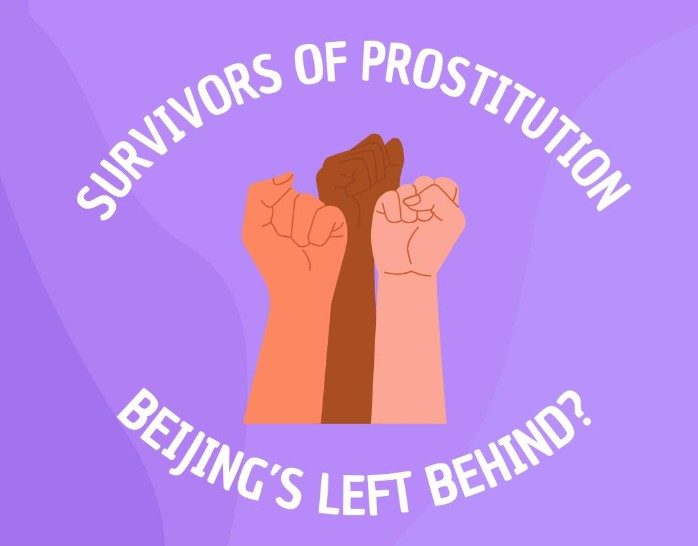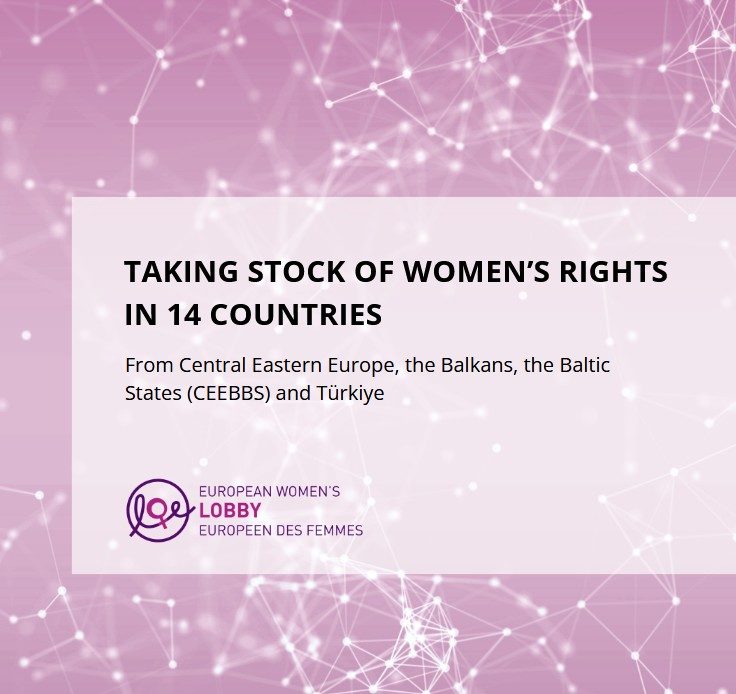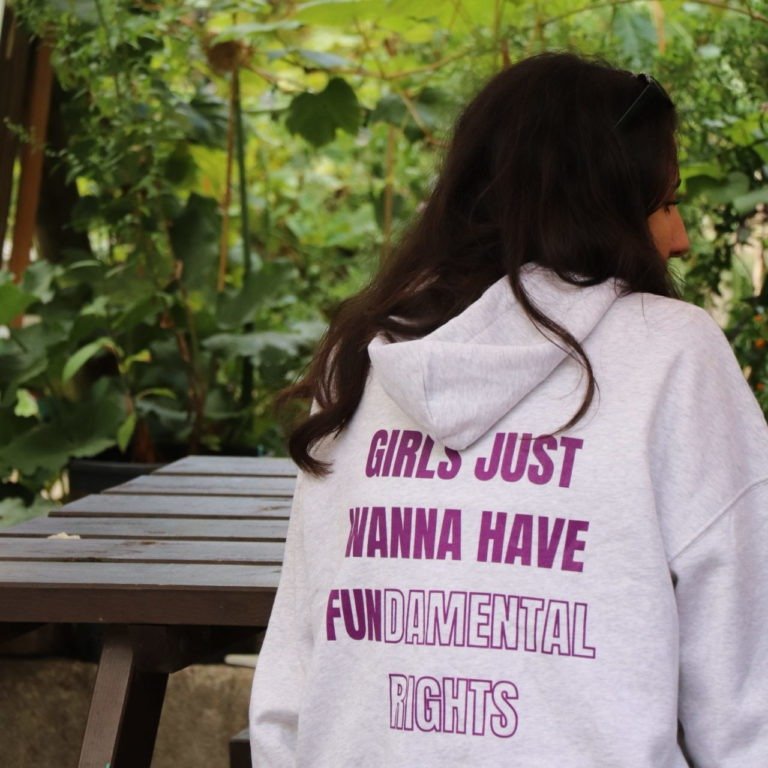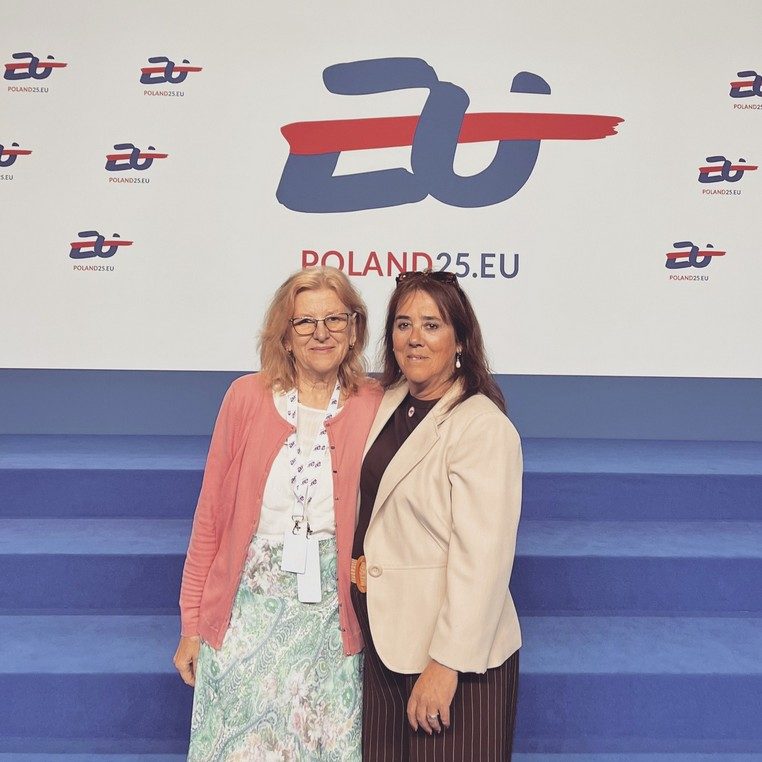The Commission on the Status of Women (CSW) the annual multilateral, intergovernmental event held at the United Nations (UN) headquarters in New York took place on 10-21 March 2025.
As this year’s focus was on the 30th anniversary of the Beijing Declaration and Platform for Action (BPFA), a strong Political Declaration was adopted prior to the meeting and therefore, contrary to other years, no Agreed Conclusions were negotiated during the CSW.
The Political Declaration, while acknowledging that no country has fully achieved gender equality and the empowerment of women and girls, reaffirms commitment to the BPFA and other outcome documents that have been adopted over the past three decades. The Declaration welcomes the contribution of civil society to the implementation of the BPFA and pledges to continue supporting with increased, flexible and sustainable resources, at the local, national, regional and global levels.
At the end of the CSW, the multi annual programme for the period 2026-2029 was adopted and can be found here. Next year (2026), CSW70 will focus on women’s access to justice and review the Agreed Conclusions of the 65th session on women in decision-making in public life and the elimination of violence.
At the same time, revitalising the CSW is a major priority in order to strengthen its impact across the whole of the UN system (gender mainstreaming) and ensuring meaningful engagement of all in achieving gender equality and accelerating the implementation of the BPFA. The 71s session (2027) will review its methods of work in accordance with the Economic and Council resolution of 2022.
EWL side event “Do not forget us” : Prostitution the forgotten women of Beijing?
In her opening remarks, EWL President Iliana Balabanova stated we are here because prostitution is no work nor a choice. Held on 12 March at the EU Mission to the UN, our joint event on prostitution received tremendous support in a packed room. Two survivors of prostitution gave powerful testimonies and a key message “do not forget us”.
The event was co-organised by EWL, Portuguese Women’s Platform, la CLEF – French coordination of the EWL, European Network of Migrant Women (ENoMW) and CAP International.
“If we escape from our traffickers, we are no longer considered as victims of trafficking”, Blessing
Blessing spoke about her devastating story of how a highly qualified woman (graduate in the tech sector) was promised a bright future in Europe. But, the promise soon became a nightmare, when she ended up in brothels in Spain and Italy: “[A] market where vulnerable women are sold and disposed to become sexual slaves.” The irony, she explained, is when you finally manage to escape the traffickers, you are no longer considered as a trafficked woman and can be deported and/or re-trafficked, as there are no support systems to accompany women who escape hell on earth – prostitution. Trafficking and prostitution cannot be dissociated.
“Society blames you for prostitution; my experience is not just a story to be further exploited”, Sage
Prostitution and trafficking cannot be dissociated, this message was echoed by Sage, stating that she was lucky to get support from a women’s organisation in Sweden (her country of origin) but such services do not exist everywhere especially in rural areas. She voiced her concern regarding on the one hand, the urgency for survivors to come forward and, on the other hand, the risk of exploiting their real-life experiences through “sensationalism” from the media and others. She expressed her optimism as the opposition feels threatened which is a sign that we are making progress. Today, she is involved in raising the awareness of young boys (in schools) who want to know more about prostitution and the links with pornography. She believes that we need to engage more men in the conversation as they are at the source of the demand.
Walking on a tight-rope
The panel that ensued revealed the ‘tight rope’ on which we are walking regarding prostitution. In the EU, equality between women and men is enshrined in the treaties, yet 75% of women in prostitution are of migrant origin, evoking a form of ‘second-class citizenship’ for some women when all women should have equal rights.
The three main legal frameworks in the EU can also lead to (voluntary?) confusion:
- Prohibition in which women in prostitution and buyers are on the same level as victims and perpetrators;
- Regulatory framework – decriminalisation of both women in prostitution and pimps;
- Equality model, that sanctions buyers and proposes exist strategies for women in prostitution, including a residence permit, support services and an employment permit. But, not enough resources are provided in this model. However, the potential to invest confiscated funds from pimps could be further explored to be allocated to exist policies.
The digital space, for which there is no regulation, offers (new) spaces for pimps as they control communications and social outreach. The CLEF provides an outreach service to women who are prostituted through the digital space.
The national Rapporteur from Sweden spoke about the Campaign “Don’t let the silence speak”, encouraging boys and men to speak up against friends and colleagues that talk about exploiting others sexually.
Established in 2012 by the European Women’s Lobby the Brussels Call – Together for a Europe Free from Prostitution is a coalition of more than 200 civil society organisations and (former) Members of the European Parliament (EP). It underlines that prostitution is in contradiction with human dignity and contrary to the values of the European Union (EU) based on equality, human rights, democracy and the rule of law. In 2023, the first ever Resolution was adopted by the EP on the regulation of prostitution in the EU: its cross-border implications and impact on gender equality and women’s rights.
The Brussels Call coalition also provides support and contributions to UN Special Rapporteur on Violence against Women, Reem Alsalem, in particular, her report on Prostitution and violence against women and girls (2024).
Finally, we presented our Beijing +30 Commitments to survivors – Global Allies against the exploitative system of prostitution, which contains six commitments to end prostitution.
We invite you to explore our complete report on the 69th session of the Commission on the Status of Women (CSW69).



